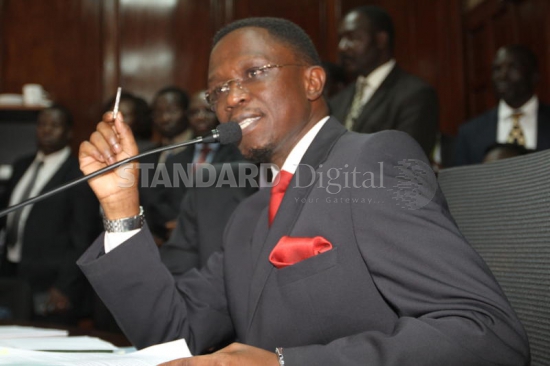×
The Standard e-Paper
Kenya’s Boldest Voice

Allegations of extortion and bribery within parliamentary committees did not begin with the suspended Public Accounts Committee (PAC) which is under investigation.
It is an old story of big money, greedy politicians and the lingering threat of adverse mentions and parliamentary sanctions. The only difference now is that it is MPs complaining that their corrupt colleagues are taking all the loot.